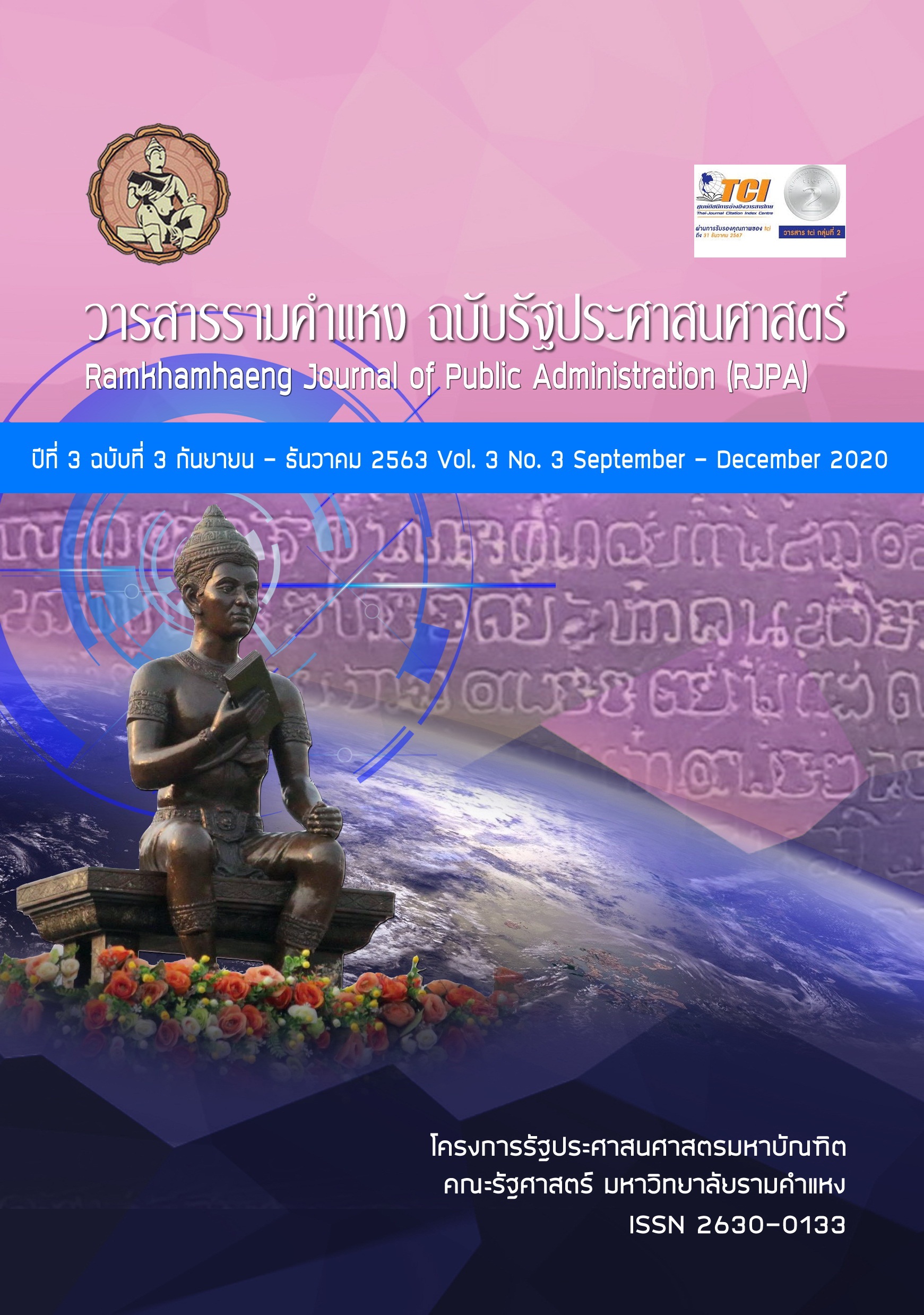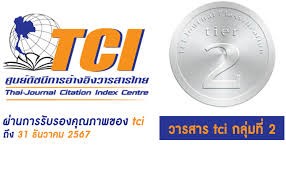การเมืองว่าด้วยการแทรกแซงราคาสินค้าข้าวเปรียบเทียบระหว่างไทยและสหรัฐอเมริกา (Political Intervention in Rice Price: Comparing between Thailand and United States of America)
Abstract
บทคัดย่อ
การศึกษานี้มีวัตถุประสงค์เพื่อศึกษานโยบายราคาข้าว เปรียบเทียบระหว่างไทยและสหรัฐอเมริกา และเพื่อเสนอแนวทางที่เหมาะสมสำหรับประเทศไทย การดำเนินการวิจัยเป็นการวิจัยเชิงคุณภาพ โดยการวิเคราะห์เอกสารและการสัมภาษณ์เชิงลึกจากกลุ่มผู้ให้ข้อมูลหลัก 4 กลุ่ม คือ (1) นักวิชาการที่ศึกษานโยบายข้าวของไทย (2) หน่วยงานภาครัฐที่รับผิดชอบนโยบาย (3) ผู้ประกอบการ และ (4) นักการเมืองฝ่ายรัฐบาลที่มีบทบาทในนโยบาย ผลการศึกษา พบว่า นโยบายการช่วยเหลือเกษตรกรผู้ปลูกข้าวเป็นนโยบายสำคัญที่ทำมาอย่างยาวนาน ซึ่งรูปแบบอาจแตกต่างไปตามนโยบายของพรรคการเมืองที่เข้ามาบริหารประเทศ แต่ต่อมา นโยบายนี้ได้กลายเป็นนโยบายที่ใช้เพื่อสร้างฐานเสียงของกลุ่มผลประโยชน์ (พรรคการเมืองฝ่ายรัฐบาล) ผ่านนโยบายการจำนำข้าวและนโยบายการประกันรายได้เกษตรกรขั้นต่ำ ขณะที่สหรัฐอเมริกา พบว่าไม่มีกลุ่มผลประโยชน์ใดมีอำนาจกำหนดนโยบายที่ชัดเจน ไม่ว่าพรรคการเมือง หน่วยงานรัฐ สมาคม รวมถึงเกษตรกร เพราะมีกฎหมาย Farm Bill ซึ่งมาพร้อมกับแผนงบประมาณ เป็นกฎหมายเพื่อแก้ไขปัญหาด้านการเกษตร ทำให้การดำเนินนโยบายของสหรัฐฯ เป็นลักษณะควบคุม (regulate) แต่ของไทย เป็นลักษณะการแทรกแซง (intervene) ดังนั้น หากประเทศไทยมีกฎหมายเกษตรที่มีคุณภาพก็จะทำให้การนำนโยบายไปปฏิบัติมีประสิทธิภาพ ลดการแทรกแซง ทั้งนี้ การแก้ไขปัญหาราคาข้าวนอกจากการมีกฎหมายเกษตรแล้วนั้น ยังคงต้องใช้ทั้งหลักเศรษฐศาสตร์ควบคู่กับการแก้ไขปัญหาด้านการเมืองอีกด้วย
Abstract
Major findings from the research suggest that government assistance programs introduced to support rice farmers is a very important agricultural policy that has long been in place, though the type of support programs have tended to vary over the years depending on the overarching strategic polices set forth by the ruling coalition government at that particular point in time. However, the primary purpose in which such programs were intended to serve (as a means of increasing economic welfare), have later become diluted and are now being used for the purpose of securing and establishing strong constituent bases for those interest groups that stand to benefit (political parties in the coalition government) as seen through recent programs like the rice pledging schemes and minimum income insurance programs for rice farmers.
The purpose of this research study is to examine pricing policies of rice, provide a comparative analysis between Thailand and the United States, and offer recommendations on appropriate policy approaches for Thailand. A qualitative research method is applied in conducting this study and draws on a combination of document analysis and in-depth interviews from four key groups of participants consisting of (1) rice policy experts in Thailand, (2) responsible and related government agencies with policy oversight, (3) entrepreneurs, and (4) elected political office holders (politicians) that play a critical role in the policy-making process.
On a comparative basis to the United States, it is found that no interest group, whether political parties, government agencies, associations, or farmers themselves, has absolute authority that entitles them to take control over the policy-making process. This structured balance is attributed to the Farm Bill legislation which is an important agricultural policy tool that contains provisions to address various issues and core challenges faced in the farming economy and sets the budget parameters for spending.
It can be conclusive to say that agricultural policies implemented by the United States are more regulating in nature in contrast to those implemented by Thailand that appear to be more intervening in nature. Therefore, if Thailand is able to develop an agriculture legislation similar to the Farm Bill, this will allow policies to be effectively implemented with less intervention. However, legislation alone may not be sufficient to address the surrounding factors that affect the price of rice, but can be successfully resolved if implemented together in a multidimensional approach that builds on sound economic principles and undertaking necessary political reforms.




 Publication Policy (นโยบายการตีพิมพ์บทความ)
Publication Policy (นโยบายการตีพิมพ์บทความ) Publication Ethics (จริยธรรมการตีพิมพ์บทความ)
Publication Ethics (จริยธรรมการตีพิมพ์บทความ)